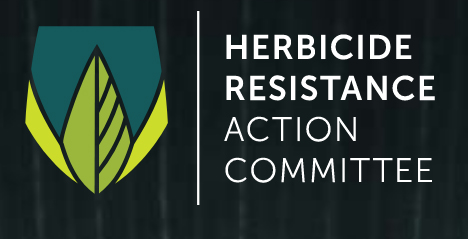INTERNATIONAL HERBICIDE-RESISTANT WEED DATABASE
|
|
Russian-thistle (Salsola tragus) is a dicot weed in the Chenopodiaceae family. In Idaho this weed first evolved resistance to Group 2 (Legacy B) herbicides in 1990 and infests Wheat. Group 2 (Legacy B) herbicides are known as Inhibition of Acetolactate Synthase
(Inhibition of Acetolactate Synthase
). Research has shown that these particular biotypes are resistant to chlorsulfuron and they may be cross-resistant to other Group 2 (Legacy B) herbicides. The 'Group' letters/numbers that you see throughout this web site refer to the classification of herbicides by their site of action. To see a full list of herbicides and HRAC herbicide classifications click here.
|
|
|
|
|
| Common Name | Russian-thistle | | Species | Salsola tragus | | Group | Inhibition of Acetolactate Synthase
HRAC Group 2 (Legacy B)
| | Herbicides | chlorsulfuron | | Location | United States, Idaho | | Year | 1990 | | Situation(s) | Wheat | | Contributors - (Alphabetically) | Donn Thill | |
|
|
|
| | Field, and Greenhouse trials comparing a known susceptible Russian-thistle biotype with this Russian-thistle biotype have been used to confirm resistance. For further information on the tests conducted please contact the local weed scientists that provided this information. |
| |
| | Genetic studies on HRAC Group 2 resistant Russian-thistle have not been reported to the site. There may be a note below or an article discussing the genetics of this biotype in the Fact Sheets and Other Literature |
| |
| | The mechanism of resistance for this biotype is either unknown or has not been entered in the database. If you know anything about the mechanism of resistance for this biotype then please update the database. |
| |
| | There is no record of differences in fitness or competitiveness of these resistant biotypes when compared to that of normal susceptible biotypes. If you have any information pertaining to the fitness of Group 2 (Legacy B) resistant Russian-thistle from Idaho please update the database. |
|
|
|
|
| Professor Of Weed Science
University Of Idaho
Plant, Soil
And Entomological Sciences
875 Perimeter Drive MS 2339
Moscow, 83844-2339, Idaho
United States
Email Donn Thill
Web : Web Site Link |
|
|
|
|
| Drag a column header and drop it here to group by that column |
|
|
1
| Argentina | Argentina | | 2019 |
Soybean
|
glyphosate
| 48 |
Inhibition of Enolpyruvyl Shikimate Phosphate Synthase
( HRAC Group 9 (Legacy G)
| 147 | Salsola tragus | Russian-thistle | 19218 |
|
2
| Canada (Saskatchewan) | Canada | Saskatchewan | 1989 |
Wheat
|
chlorsulfuron
| 7 |
Inhibition of Acetolactate Synthase
( HRAC Group 2 (Legacy B)
| 147 | Salsola tragus | Russian-thistle | 5067 |
|
3
| Canada (Alberta) | Canada | Alberta | 2007 |
Spring Barley, and Wheat
|
thifensulfuron-methyl, and tribenuron-methyl
| 7 |
Inhibition of Acetolactate Synthase
( HRAC Group 2 (Legacy B)
| 147 | Salsola tragus | Russian-thistle | 7831 |
|
4
| United States (Washington) | United States | Washington | 1987 |
Wheat
|
chlorsulfuron
| 45 |
Inhibition of Acetolactate Synthase
( HRAC Group 2 (Legacy B)
| 147 | Salsola tragus | Russian-thistle | 231 |
|
5
| United States (Montana) | United States | Montana | 1987 |
Cropland, and Wheat
|
chlorsulfuron
| 45 |
Inhibition of Acetolactate Synthase
( HRAC Group 2 (Legacy B)
| 147 | Salsola tragus | Russian-thistle | 411 |
|
6
| United States (Idaho) | United States | Idaho | 1990 |
Wheat
|
chlorsulfuron
| 45 |
Inhibition of Acetolactate Synthase
( HRAC Group 2 (Legacy B)
| 147 | Salsola tragus | Russian-thistle | 512 |
|
7
| United States (Oregon) | United States | Oregon | 1993 |
Wheat
|
chlorsulfuron, metsulfuron-methyl, and triasulfuron
| 45 |
Inhibition of Acetolactate Synthase
( HRAC Group 2 (Legacy B)
| 147 | Salsola tragus | Russian-thistle | 1173 |
|
8
| United States (California) | United States | California | 1994 |
Roadsides
|
chlorsulfuron, and sulfometuron-methyl
| 45 |
Inhibition of Acetolactate Synthase
( HRAC Group 2 (Legacy B)
| 147 | Salsola tragus | Russian-thistle | 1036 |
|
9
| United States (Montana) | United States | Montana | 2015 |
Fallow, and Wheat
|
glyphosate
| 45 |
Inhibition of Enolpyruvyl Shikimate Phosphate Synthase
( HRAC Group 9 (Legacy G)
| 147 | Salsola tragus | Russian-thistle | 12032 |
|
10
| United States (Washington) | United States | Washington | 2015 |
Fallow
|
glyphosate
| 45 |
Inhibition of Enolpyruvyl Shikimate Phosphate Synthase
( HRAC Group 9 (Legacy G)
| 147 | Salsola tragus | Russian-thistle | 18160 |
|
11
| United States (Oregon) | United States | Oregon | 2016 |
Fallow
|
glyphosate
| 45 |
Inhibition of Enolpyruvyl Shikimate Phosphate Synthase
( HRAC Group 9 (Legacy G)
| 147 | Salsola tragus | Russian-thistle | 13055 |
|
 |
PERMISSION MUST BE OBTAINED FIRST if you intend to base a significant portion of a scientific paper on data derived from this site. Citation:
Heap, I. The International Herbicide-Resistant Weed Database. Online.
. Available
www.weedscience.org
Copyright © 1993-
WeedScience.org All rights reserved. Fair use of this material is encouraged. Proper citation is requested.
|
|